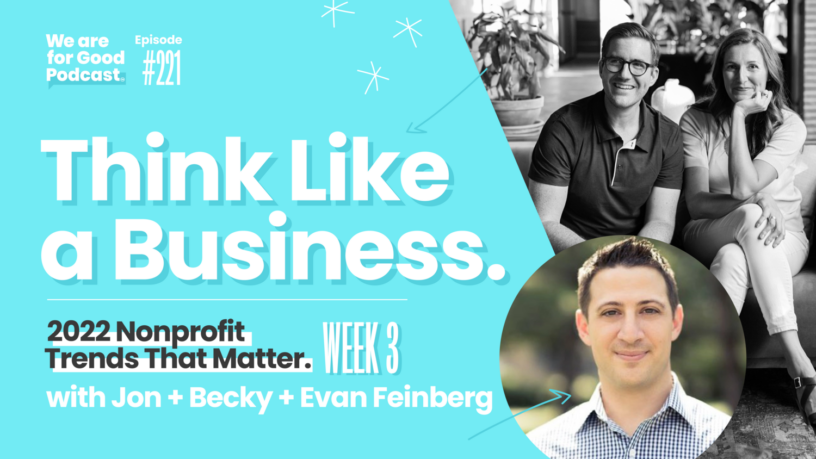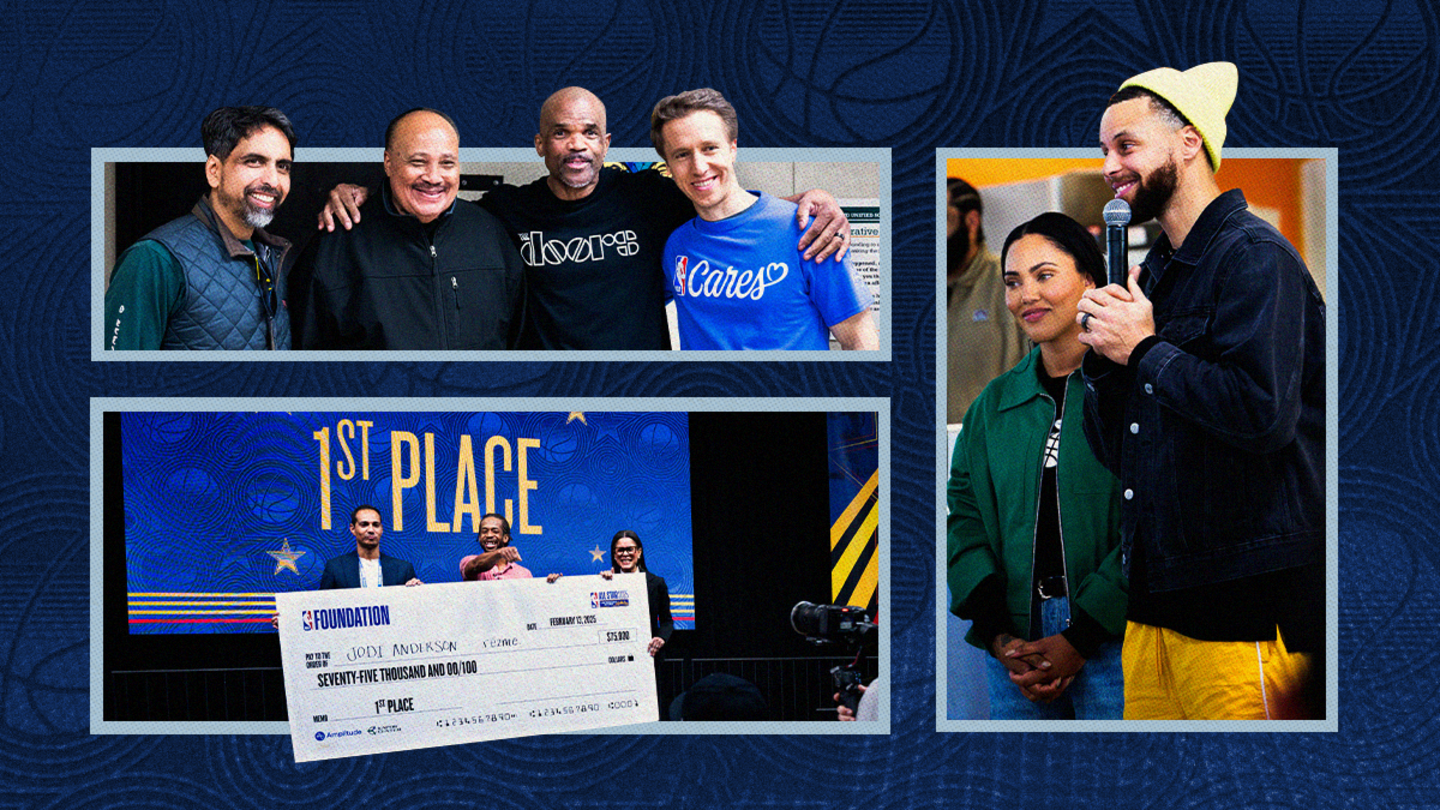This article was originally published by Stand Together Foundation.
Stand Together Foundation Executive Director Evan Feinberg was invited to speak with We Are For Good, a podcast focused on helping nonprofit leaders navigate challenges and unlock potential. The episode focused on emerging nonprofit trends and identified ways the nonprofit sector might learn from the for-profit sector in terms of serving customers and measuring impact.
Check out the full episode at https://www.weareforgood.com/episode/221.

Nonprofit trend #1: What worked yesterday won't work tomorrow
We need the disruptors, the innovators, those people who are not just trying to implement today's best practices, or some evidence-based approach that they read about in a book. Instead, we're looking for what we call social entrepreneurs - those organizations that are discovering new and better ways of transforming lives.
The solutions to barriers and social problems are not already known and just waiting to be pushed out. They must be discovered every day. And they need to be discovered by people taking risks - people with proximate knowledge, people that have experienced the problems themselves and have discovered something that worked for them or their loved ones or friends. We're looking for organizations and people that are capable of not just doing some nice things to help some people but are able to transform communities at their core.
We need a dynamic social economy that matches the more dynamic economy of the for-profit sector, which is to say laser-focused on the question: How can we create more value for the people that we serve, for those problems that we're trying to solve in communities? Relentless customer focus is what will help nonprofits look and feel a whole lot more like businesses.
Nonprofit trend #2: The most effective organizations implement principles-based cultures, rather than rules or process-based cultures
What does that mean? The first thing is that those principles are more than just integrity and respect and humility (which are absolutely critical), but they also have to be principles that you expect entrepreneurship, you expect transformation. It has to be about how you seek and gain knowledge to make better decisions. Principles have to include economic thinking about how you make decisions.
As you push principle-based approaches, you can then trust and empower your team to be where you discover new and better ways to serve your customers, so that you're no longer just as strong as the smartest person, the dynamic leader, but you now create a principles-based culture where the solutions to problems percolate from the bottom up. And that's when you start cooking with raw gas.
Nonprofit trend #3: The solutions that exist today aren't good enough, even if they're great
Once you've gone through the program, you're a part of our catalyst network - it's a platform to really bring out the best and each of these leaders and work together as a Catalyst community to catalyze change that reshapes the social sector around believing in people and empowering them from the bottom up.
Take Lorenzo Lewis. He founded an incredible nonprofit called The Confess Project. It is an organization that's working on mental health, particularly in Black communities. The way they do it is by training and equipping barbers in barber shops all across America to be frontline, lay mental health workers. And when I think about our country right now, I think about the deaths of despair on the rise, and I think about how addiction and mental health problems, particularly minority communities, growing at a much faster rate, I think this is an urgent and life or death problem for us to be solving.
Lorenzo gives me hope that we're going to be okay as a country, because we have social entrepreneurs saying that the solutions that exist today aren't enough. They're not good enough, even if they're great. They're not good enough to solve our problems. And so Lorenzo and other social entrepreneurs like him step into the breach, try something new, grow it, and are now applying the principles and values and cultural frameworks we were able to share to be able to do a whole lot more over the coming months and years.
Listen and read the full interview on WeAreForGood.com.



